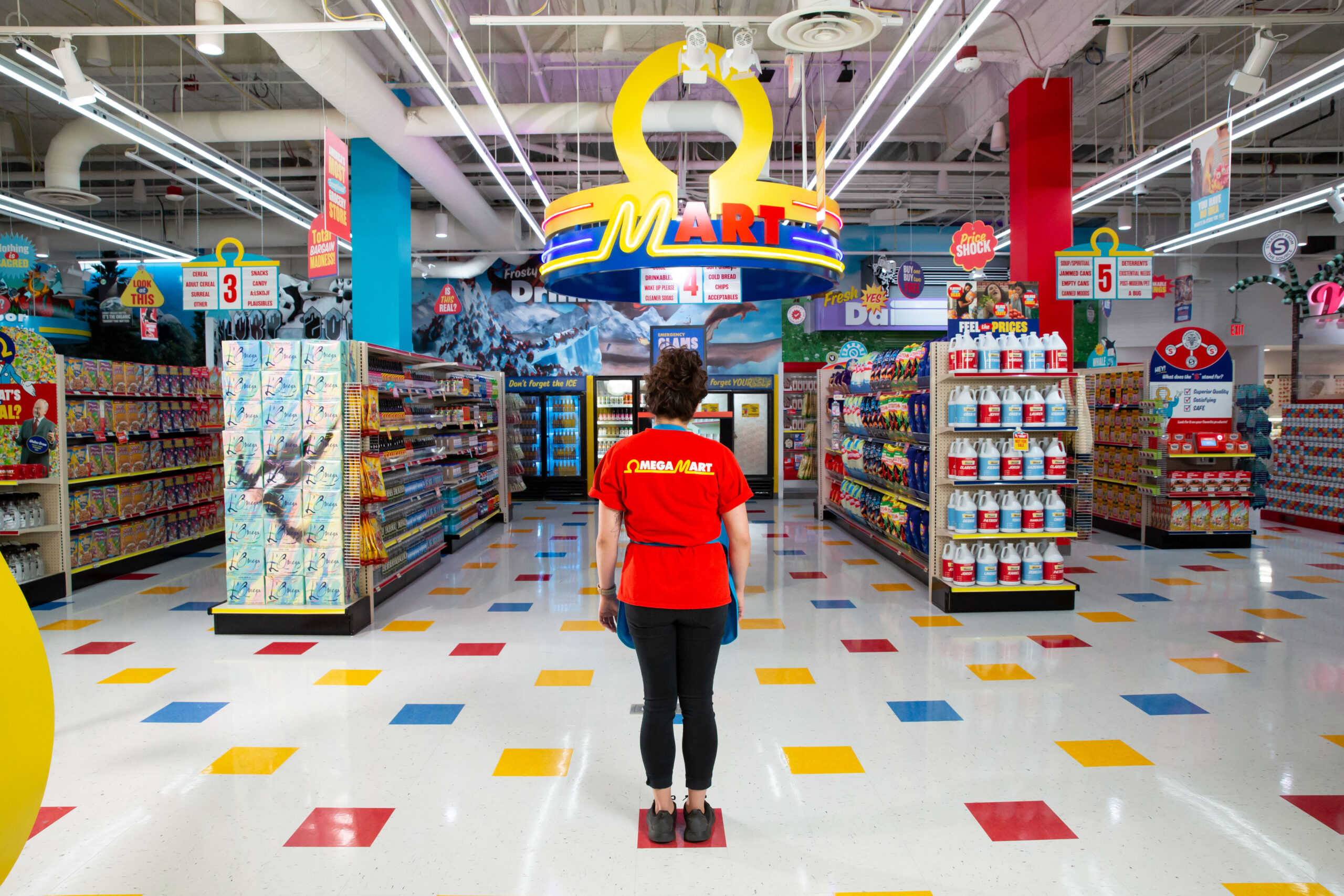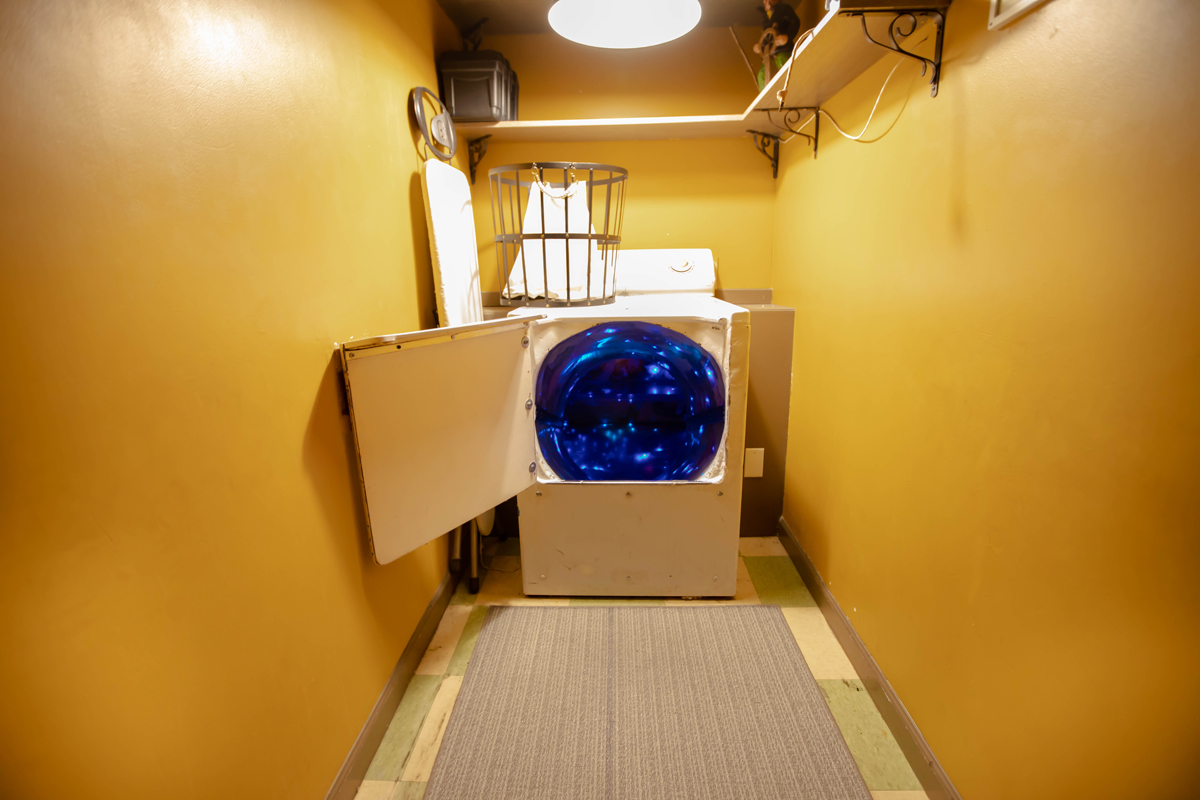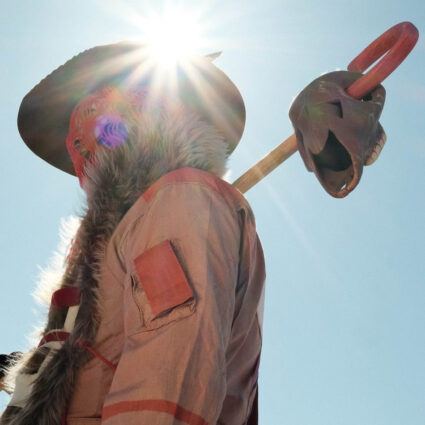Nearly four years into Meow Wolf’s unionized era, and months after 151 staff cuts, union members say things are looking up.
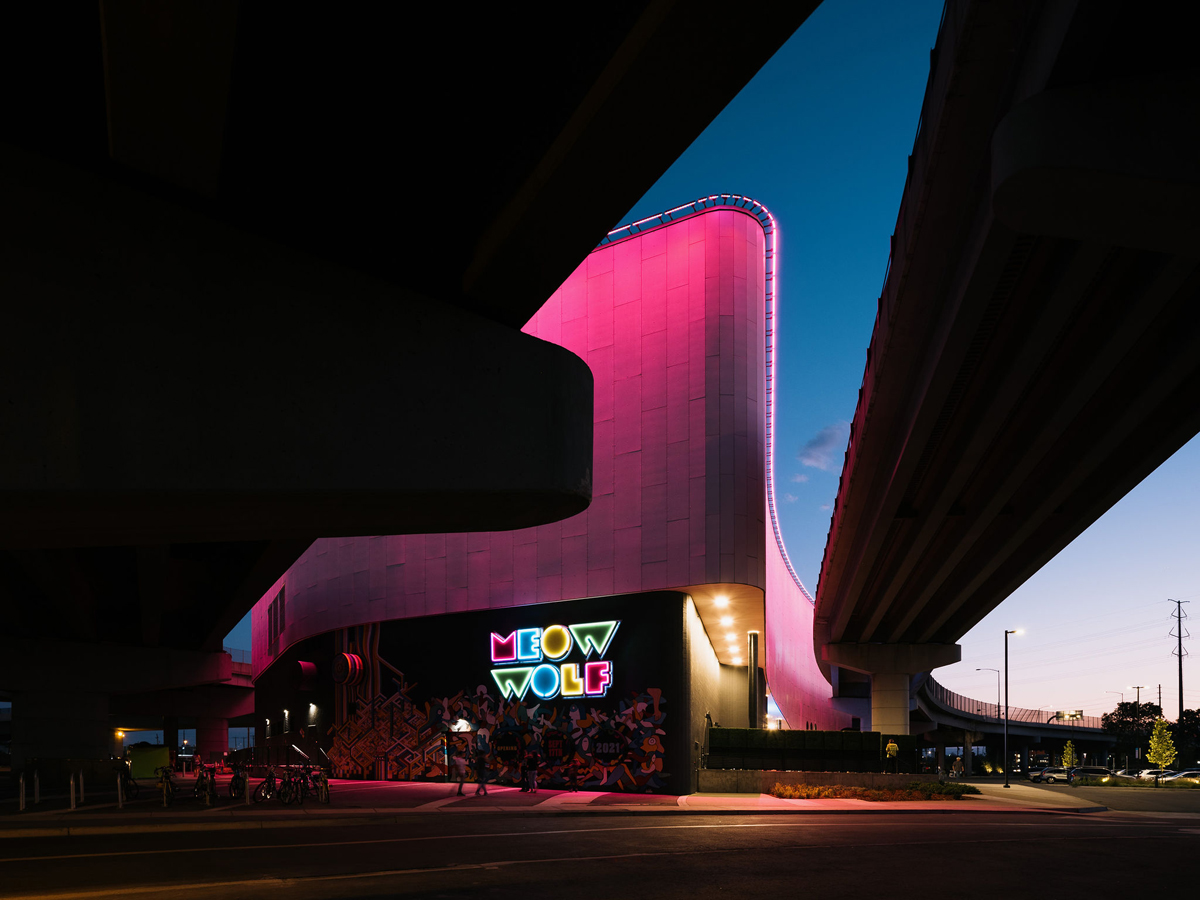
SANTA FE, NM—When Lance McGoldrick recalls his first encounters with Meow Wolf in 2014, he talks about meetings between fabricators, founders, and volunteers during the construction of Santa Fe’s House of Eternal Return attraction. “We’d all sit on the floor and Benji [Geary, a Meow Wolf co-founder] would do performance art to start us off. One meeting in 2016, we were all just crying about how hard we had been working on the House, wondering if anybody was going to come.”
As it turns out, a lot of people came. Meow Wolf’s multi-hyphenate business model was revolutionary in the arts and entertainment sphere and the immersive installations that make up the company’s self-described “multiverse” have since gone interstate. Simultaneously, the artists who serve as the driving force behind the growing company have actively been unionizing as the Meow Wolf Workers Collective under the Communication Workers of America since 2020. As these employees have worked to utilize labor strategies to seek balance between corporate growth and artistic integrity, they’ve weathered financial insecurity, surprise layoffs, and more, but it seems like their struggle is finally beginning to pay off.
[I was] being told stuff like, ‘You get paid so little because you have the fun job!’
What began as a meeting between CWA campaign lead Milagro Padilla and six Meow Wolf employees at a Buffalo Wild Wings quickly picked up steam amongst the cohort of makers. Initially contacted in 2018 by Billiam Rodgers, narrative lead and long-term employee at Meow Wolf, Padilla could sense from the beginning that Meow Wolf workers “had such a love for the place that they created together, a place where they were making decisions while sitting in a circle. That’s what really stuck out about these folks—they had the will and the relationships and the trust in each other to unionize.”
In union parlance, that energy and excitement would be classified as “activation,” and was partially driven by a massive round of layoffs in early 2020 across the company. The workforce was cleaved in half as many were preparing to relocate in order to prepare significant additions to Meow Wolf’s multiverse in Denver and Las Vegas, both projects that had been in progress since 2017.
Lance McGoldrick, now a senior artist at Meow Wolf’s Santa Fe headquarters, felt himself and other artists getting left behind as he witnessed the company take on “millions of dollars in debt” to fund Convergence Station in Denver. As more technical fabricators and executives joined the team, he recounts “being told stuff like, ‘You get paid so little because you have the fun job!’ while artists are simultaneously the people producing the intellectual property for Meow Wolf without having any ownership of it.” While this relinquishment of authorship is fundamental to the company’s model, the value of these ideas (and therefore these individuals) to the organization is equally immeasurable.
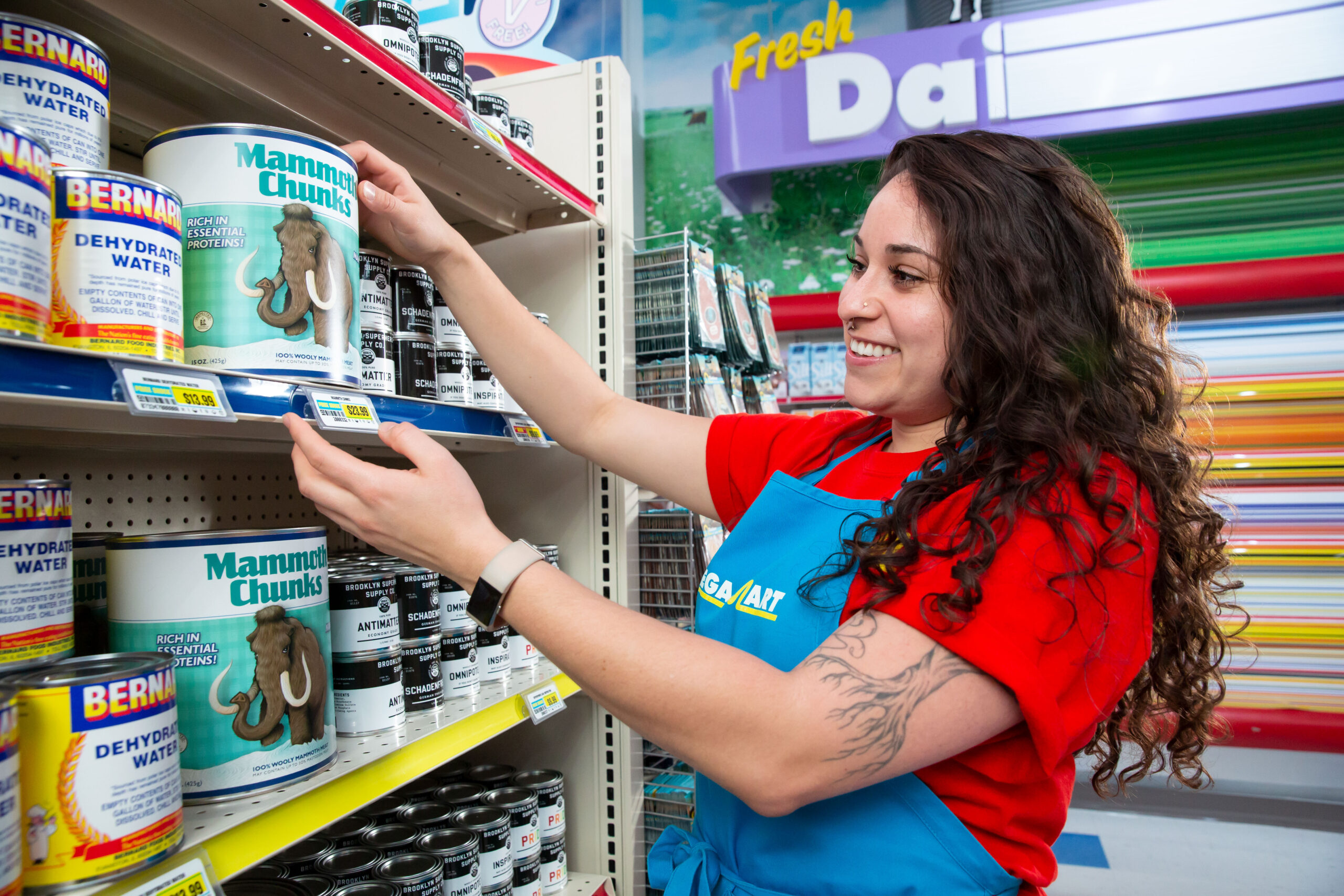
McGoldrick was first to sign the official union petition, a choice that felt obvious. He says, “Clearly we needed protection. We needed a seat at the table, too. It was a purely functional thing. I don’t think there was anybody on the executive level with nefarious intentions. Essentially, they’re at the helm of a big ship and are trying to meet specific goals, so their focus can be narrow.”
This narrow focus took a toll on workers pre-unionization, and often still does. Jerome Morrison, product manager at Meow Wolf and current secretary and treasurer of the MWWC executive board, recalls being shocked upon starting at the company, hearing “about how folks in Santa Fe who built this million-dollar engine, that were still working for that engine, couldn’t afford rent while we were bringing on former Disney executive talent at six-figure salaries.” While the union helped to bring $60,000 salaries to all employees in April 2022 with a ratified contract, those deciding the six-figure salary hires are not located at the Meow Wolf office in Santa Fe—instead, they’re living in places like San Jose and New York City.
This round of layoffs is different. Workers have a say in what’s going on.
This ideological distance between workers, executives, and investors is exacerbated by the lack of a seat on the Meow Wolf board for a labor representative. Morrison cites this as a regrettable loss at the negotiation table, but also feels immense hope for the future of Meow Wolf workers everywhere, even in light of a round of 151 layoffs that took place in May 2024. Even though twenty-nine Santa Fe and fifty Denver employees lost their jobs, many of whom were included in the union, Padilla says, “This round of layoffs is different. Workers have a say in what’s going on. In Las Vegas, workers got an extra six weeks on payroll and a separate severance package, we were also able to get the number of people laid off reduced. That would never have happened in 2020.”
Regardless of whether this cooperation is due to negative press or the quiet departure of chief people officer Katie Ibay, cited by current and past employees that I spoke with as intensely antagonistic toward union efforts, it’s indicative of a hopeful shift. This transition from denying to voluntarily recognizing the union across locations will likely be informed by MMWC’s eight pending cases with the National Labor Relations Board. Some of the suits aim to expand the union umbrella over all eligible employees, including creative directors who have already signed their CWA cards.
While these actions may not yield immediate returns, Morrison insists that it doesn’t mean that they won’t work in the long run. He paraphrases Martin Luther King, Jr., with a wistful twist: “While the moral arc of the universe is long, we can always hope that it bends toward justice.” Unions representing cultural workers have been slow to grow in the Southwest, but a new wave is beginning to grow as employees rally to win the resources necessary to live full lives while generating vital arts programming for the public.
